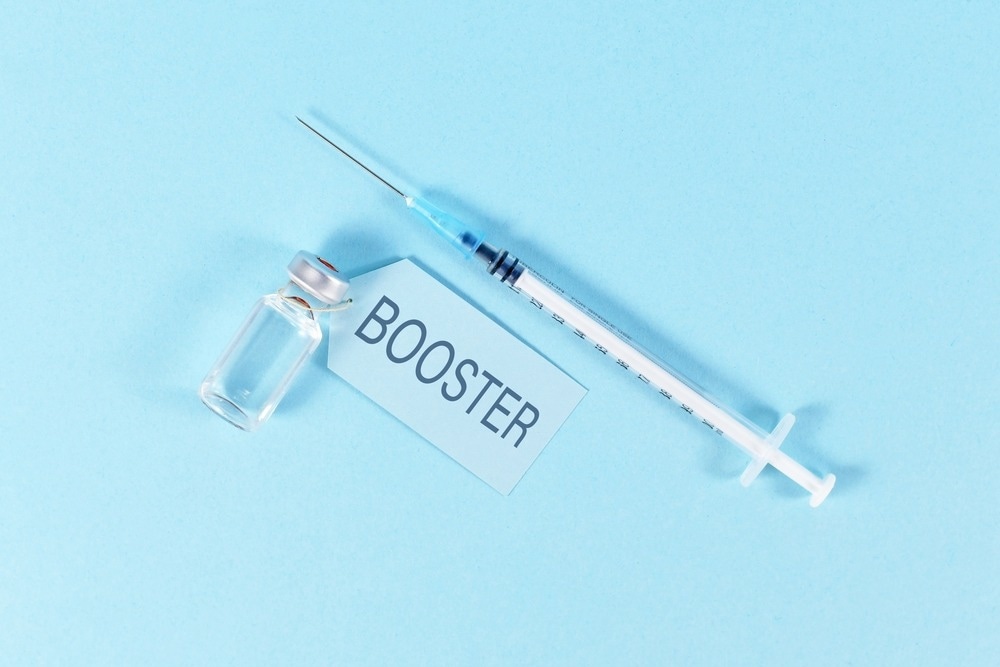
In a recent study posted to the medRxiv* preprint server, researchers compared the efficiency of the severe acute respiratory syndrome coronavirus 2 (SARS-CoV-2) Omicron BA.4-5 and BA.1 bivalent messenger ribonucleic acid (mRNA)-booster vaccines.

Background
A few clinical investigations have demonstrated that the SARS-CoV-2 Omicron BA.4-5 and BA.1 bivalent mRNA-booster vaccinations improve neutralizing antibody activity against Omicron compared to the monovalent mRNA coronavirus disease 2019 (COVID-19) vaccines. Considerable data exist related to the comparative efficacy of bivalent mRNA-booster vaccinations as a fourth vaccine dose against severe SARS-CoV-2 infections.
Prior observational studies related to fourth doses were generally confined to monovalent mRNA SARS-CoV-2 vaccinations and were conducted predominantly before the establishment of the predominant Omicron BA.4 and BA.5 subvariants. As a result, information on the efficacy of bivalent mRNA vaccines is necessary for guiding the SARS-CoV-2 vaccination strategy and determining the value of producing variant-adapted vaccines.
About the study
In the present study, researchers compared the efficacy of the bivalent BA.1 or BA.4-5 mRNA-booster vaccines administered as the fourth vaccine dose against SARS-CoV-2-related hospitalization and mortality during the prevalence of the Omicron BA.4-5 subvariant.
The four Nordic nations of Denmark, Finland, Norway, and Sweden have national demographic and healthcare registers, including individual-level information that facilitated correlation using unique and country-specific variables for all citizens.
The team collected information related to SARS-CoV-2 vaccines and confirmed COVID-19 infections, related comorbidities, and hospitalizations, as well as demographic factors, by linking these registries. Within each nation, a source cohort of people vaccinated with a minimum of three doses of the AZD1222, mRNA-1273, and/or BNT162b2 vaccines was identified.
Eligible participants included those who were not 1) vaccinated with the third or fourth dose within the last 90 days after receiving their previous vaccine dose, 2) younger than the lower age limit specified for each country: 50 years for Denmark, 60 for Finland, 65 for Norway, and 50 for Sweden, or 3) vaccinated with the fourth dose prior to September 1, 2022, in Denmark, July 18, 2022, in Finland, and July 1, 2022, in Sweden and Norway. Irrespective of the vaccine brand, patients vaccinated with the fourth dose were categorized based on if they were vaccinated with a bivalent BA.1, bivalent BA.4-5, or monovalent mRNA booster vaccine.
Using a matched design, the team compared the efficacy of a bivalent BA.1 and BA.4-5 mRNA-booster vaccination as the fourth dose to that of three monovalent doses. Participants vaccinated with the fourth dose were paired with those not yet vaccinated with the fourth dose.
Antibodies eBook

Additionally, age, the month in which the third vaccine dose was administered, along with a propensity score comprising sex, residential location, vaccination priority cohorts, chosen comorbidities, and past COVID-19 infection were used to match the individuals. Inverse probability weights were employed to examine the efficacy of immunization with the bivalent BA.1 and BA.4-5 booster vaccines as the fourth dose.
Results
The research cohorts included 3,368,697 adults vaccinated with the fourth dose, of which 1,290,999 were bivalent BA.4-5-vaccinated, 992,282 were bivalent BA.1-vaccinated, and 1,085,416 were monovalent mRNA-booster-vaccinated. Denmark was found to have a larger proportion of bivalent mRNA-booster vaccine recipients than Norway, Finland, and Sweden. Within each nation, the manifestation of comorbidities and prior COVID-19 infection was comparable among bivalent BA.1 booster- and BA.4-5 booster-vaccinated individuals.
When the team compared four-dose with three-dose vaccinated persons during 60 days of follow-up, the cumulative rates of SARS-CoV-2-related hospitalization and mortality were low. For instance, the cumulative occurrences of hospitalization due to COVID-19 did not surpass 0.16% among those who received three or four vaccine doses, in any of the comparisons performed in the study. Furthermore, receiving a bivalent BA.4-5 booster as the fourth dose was related with a decreased risk of SARS-CoV-2-related hospitalization in all four Nordic countries.
Comparative vaccine effectiveness (CVE) varied from 74.1% to 91.2% across the four countries, while the combined CVE approximate was 80.5%. Bivalent BA.1 booster vaccination as the fourth dose was also associated with reduced hospitalization risks for COVID-19 with a 74.0% CVE. The overall CVE for COVID-19 mortality for the bivalent BA.4-5 vaccine was 77.8% and for the BA.1 booster vaccine was 80.1%. Monovalent mRNA vaccination as the fourth dose enhanced protection against hospitalization and mortality due to COVID-19.
The pooled estimate revealed that bivalent BA.4-5 booster vaccination was linked with a decreased risk of SARS-CoV-2-related hospitalization compared to BA.1 booster vaccination. Notably, CVE estimates were not uniform between nations as the combined estimate was mostly influenced by Denmark's bigger population. There was no statistically remarkable variation in mortality risk in Denmark due to COVID-19 among bivalent BA.4-5 and BA.1 booster vaccinations.
Conclusion
The study findings showed that bivalent BA.1 or BA.4-5 mRNA booster vaccination as a fourth COVID-19 vaccine dose boosted protection against SARS-CoV-2-related hospitalization and mortality compared to triple-vaccinated individuals. Fourth dose immunization with bivalent BA.4-5 boosters provided marginally higher protection against hospitalization due to COVID-19 than bivalent BA.1 booster vaccines. The researchers believe that the present study provided much-needed information about the efficacy of bivalent booster vaccines in the context of the ongoing COVID-19 pandemic.
*Important notice
medRxiv publishes preliminary scientific reports that are not peer-reviewed and, therefore, should not be regarded as conclusive, guide clinical practice/health-related behavior, or treated as established information.
- Andersson, N. et al. (2023) "Comparative effectiveness of the bivalent BA.4-5 and BA.1 mRNA-booster vaccines in the Nordic countries". medRxiv. doi: 10.1101/2023.01.19.23284764. https://www.medrxiv.org/content/10.1101/2023.01.19.23284764v1
Posted in: Medical Science News | Medical Research News | Disease/Infection News
Tags: Antibody, Coronavirus, Coronavirus Disease COVID-19, covid-19, Efficacy, Healthcare, Immunization, Mortality, Omicron, Pandemic, Research, Respiratory, Ribonucleic Acid, SARS, SARS-CoV-2, Severe Acute Respiratory, Severe Acute Respiratory Syndrome, Syndrome, Vaccine

Written by
Bhavana Kunkalikar
Bhavana Kunkalikar is a medical writer based in Goa, India. Her academic background is in Pharmaceutical sciences and she holds a Bachelor's degree in Pharmacy. Her educational background allowed her to foster an interest in anatomical and physiological sciences. Her college project work based on ‘The manifestations and causes of sickle cell anemia’ formed the stepping stone to a life-long fascination with human pathophysiology.
Source: Read Full Article